Many breathed a sigh of relief when, on 31 March, Nigerian president Goodluck Jonathan called the man who had just beaten him in the general election, conceded defeat, and wished him well.
It was a first for Africa’s most populous country: never before had an incumbent president relinquished power peacefully to an elected opponent.
So anxious were Nigerians for democracy finally to be allowed to work that supporters of the winner, General Muhammadu Buhari (pictured), hailed Jonathan as a “hero” for stepping aside.
Promises are easy to make, and easy to start, but it’s the resolve of the government when they come up against resistance that will be key– Dr Michael Jennings, Centre of African Studies, SOAS
Now begins a new chapter for Africa’s troubled giant. It is a major oil producer and has Africa’s biggest economy, and yet around 60% of Nigerians are stuck in grinding poverty, living on less than a dollar a day.Â
It has been plagued by endemic corruption and insecurity. In the north east, Islamist terror group Boko Haram has caused around 1.5 million people to flee their homes, while in the south, peace in the Niger Delta is looking more fragile.Â
Failed state
Buhari must manage big expectations, which he has stoked himself. A one-time military dictator – he ruled Nigeria badly for 20 months after a coup in December 1983 – Buhari styles himself now as a convert to democracy. He stood in three general elections (2003, 2007 and 2011) before winning this year on promises of radical political and economic reform.
In campaign speeches likening Nigeria to a failed state, one that cannot meet people’s basic needs despite vast natural wealth and human talent, Buhari pledged a fresh start.
Central to his agenda is an extremely ambitious infrastructure plan. By 2019, he said, his government would build 5,000km of “superhighways” and 6,800km of modern railways. Also by 2019, electricity would be supplied “24/7”. Every one of Nigeria’s 36 states would have an airport.
He said he would wield a big legislative broom to sweep away obstacles to public-private partnerships, and create a National Infrastructural Development Bank to provide loans at low rates.
Infrastructure will be key to diversifying and stimulating Nigeria’s economy. Sea ports and airports, electricity, road, rail and urban transport are all desperately needed. But can Buhari do it all?Â
More than Goodluck
Dr Michael Jennings, chair of the Centre of African Studies at SOAS University of London, believes he has a better chance than Goodluck Jonathan.
In Jennings’ view the outgoing president was hamstrung both by tensions in the Nigerian political framework, and by a lack of credibility.Â
Jonathan rose to power through a series of accidents. He had been deputy governor of the state of Bayelsa, becoming governor only when his predecessor was impeached. He was then appointed vice president by president Umaru Yar’Adua, and was made president only when Yar’Adua fell ill in 2010.Â
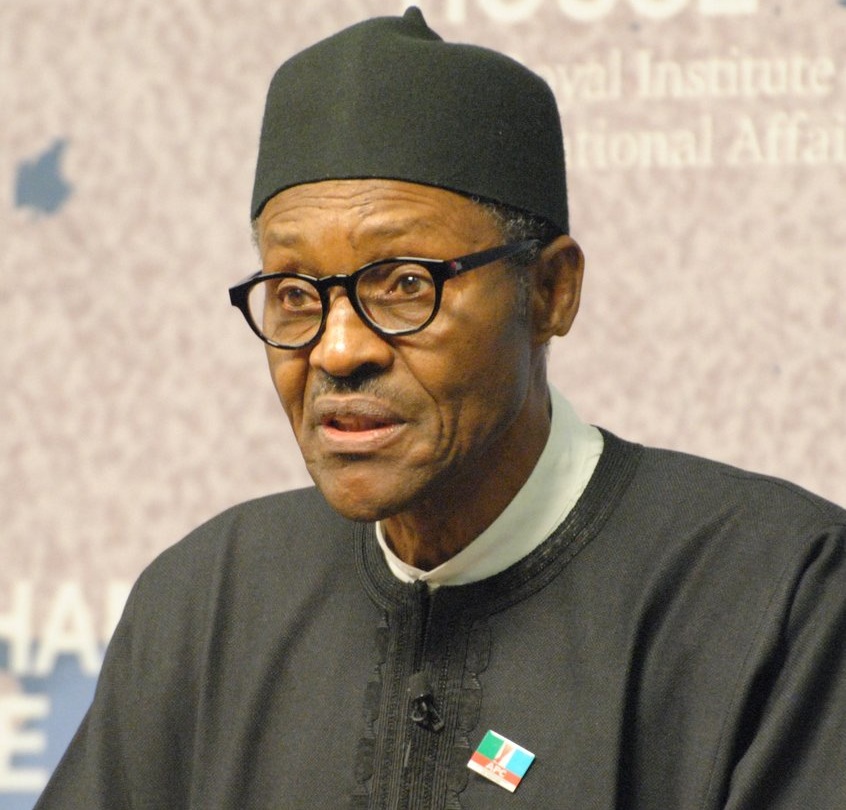
General Muhammadu Buhari, one-time dictator, now a convert to democracy (Wikimedia Commons)
“He was always a divisive president,” Jennings said. “It was felt he had inherited the position rather than winning it in the first place, which was a major reason why Jonathan was never quite able to present himself as a unifying leader.”Â
Woefully inadequate
What finally undid his administration in the public’s eye, however, was its response to Boko Haram, a response Jennings called “woefully inadequate”.Â
While the kidnapping of more than 200 schoolgirls from Chibok in 2014 enraged the nation and captured world attention, the government had been failing to deal with the terrorists for the previous five years.
Its move to delay the election for six weeks in February this year – ostensibly to move against Boko Haram and prevent the group from disrupting elections – was seen as too little, too late.
About Buhari, Jennings is cautiously optimistic. “The fact that there was a clear election victory, a transparent process and a peaceful transition of power may mean that the president has more authority.”Â
Can the centre prevail?
He will need that authority because power is so diffused in Nigeria. Ministries call many shots, and each of the 36 states has a powerful governor.
“Power doesn’t flow from the president, through government ministries and then out to the regions in a way that allows a project to be decided at the centre and then implemented,” Jennings said. “At every level there are politicians and other important officials who can influence what takes place and what doesn’t.Â
“You may have people who are thinking strategically but that doesn’t necessarily translate all the way through the system. Plans can be subverted and changed to reflect self interest. That’s a problem everywhere but it’s a particular problem given the power of governors in the Nigerian system.”Â
Strapped for cash
Another problem Buhari will face is empty coffers. The dramatic fall in the price of oil, which provides around 70% of government revenue in Nigeria, has severely impacted government spending on infrastructure.
“The government has cut back significantly on their budget for 2015 because the cash just isn’t there,” said Kunle Elebute, partner and head of advisory at KPMG Nigeria.Â
Large construction firms relying on infrastructure schemes have been laying off workers in droves, he said, although the commercial real estate market in Lagos has been booming.
To make up for the revenue shortfall Nigeria needs private sector investment, Elebute said, adding that he believes it will come – under the right conditions.
“The outlook is very strong,” he said. “The election will boost confidence internationally in the way the country is managed, and in us having the right team to run it from a fiscal standpoint, because the transparency hasn’t been there in past years.”Â
Corruption, here to stay?
But Buhari will have to make good on his promises to tackle corruption. He could start by making public a PwC audit into the country’s oil accounts, ordered after the governor of Nigeria’s central bank, Lamido Sanusi, alleged that as much as $20bn in oil revenues had gone missing between 2012 and 2013 – a claim that got him suspended by the Jonathan government.
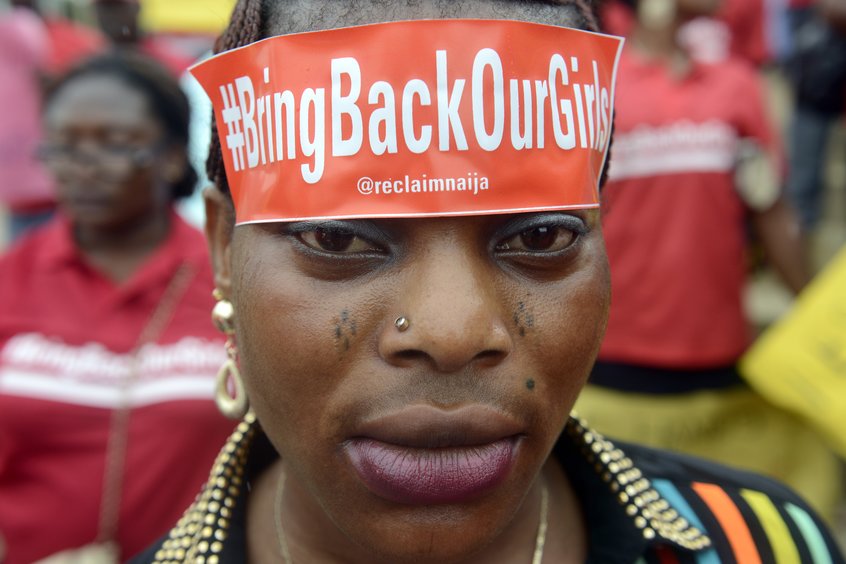
Lagos, 29 May 2014, a woman marches for the release of more than 200 Chibok schoolgirls abducted by Boko Haram (Pius Utomi Ekpei/AFP/Getty Images)
The PwC audit was delivered in February this year, just days before the election was to have taken place, but its findings have yet to be revealed.
Michael Jennings believes corruption will remain a feature of Nigerian affairs for some time yet, but that it will not halt the country in its tracks.
“It’s almost inconceivable to think of any major infrastructure project that isn’t going to be influenced and shaped by corruption,” he said.
“But that doesn’t necessarily mean that the projects won’t happen. Corruption has been linked to major infrastructure projects in many countries for decades. In South Korea there was widespread corruption in the 1950s and 60s, yet that didn’t impede its own economic development. But clearly it will shape development.”Â
Truly Nigerian
Establishing good governance and vanquishing Boko Haram will be tough but, if infrastructure is to transform Nigeria, Buhari faces an even bigger challenge: formulating and pushing through a truly national plan.Â
Nigeria is deeply fractured by religious, ethnic, political and geographic divides. In the past, leaders have pandered to regions or sectors to boost their own power, but Michael Jennings said that Buhari will need to think nationally if his infrastructure plan is to have an impact.
“Does this look like a coherent, national strategy, or does it look like regions that are the most economically or politically powerful are getting the most resources, because they’ve been able to manipulate the process?” he said.
“How are marginalised, remote areas being linked in to the more prosperous areas? Is this a policy that is truly Nigerian, or will it be picking one or two regions and sectors without thinking hard about how it will benefit the country as a whole?”Â
Don’t forget the neighbours
Jennings added that a truly successful infrastructure plan would take account of needs in the greater West African region.Â
“Trying to travel from one country to another in West Africa is incredibly difficult, particularly from Francophone to Anglophone Africa,” he said. “Often it’s easier to fly to Ethiopia or to a hub airport in Europe to get to a neighbouring country.Â
“Any successful infrastructural development has to think regionally, how to establish links with neighbours to generate the trade and other links that are vital to economic development.”Â
The long view
Optimism is high after the election.Â
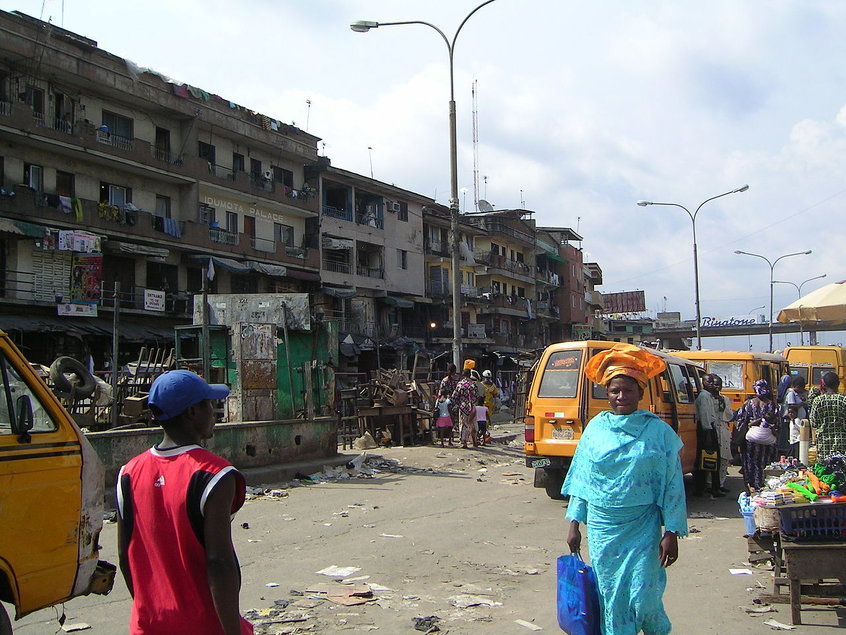
Despite Nigeria’s vast natural wealth, over 60% of its people live in poverty (Wikimedia Commons)
KPMG’s Elebute said that if Buhari can make real progress along a dual track of transparency and security, the world will see that Nigeria is “back in business”, and short- and long-term investment will start pouring in.
Most observers, though, warn that expectations should be tempered.
“Governments can often look very good in their first year and do all kinds of things that get them plaudits from donors and other international organisations,” said Jennings. “More important is what happens over three to five years, and even after the next election. Do we then start to see the distortions creeping back in?Â
“Promises are easy to make, and easy to start, but it’s the resolve of the government when they come up against resistance that will be key.”
Main photograph: In Makoko, one Nigeria’s oldest slums, residents built homes on stilts in a lagoon. It was demolished in 2012 (Heinrich-Böll-Stiftung/Wikimedia Commons)
Comments
Comments are closed.





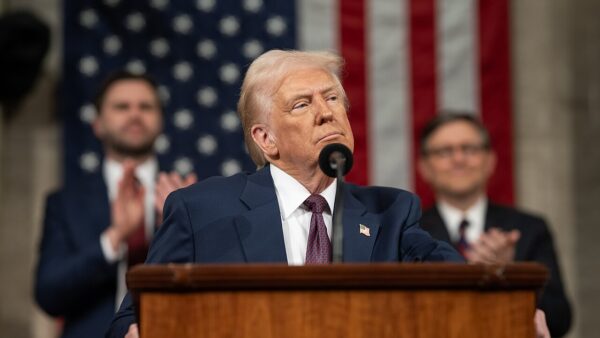




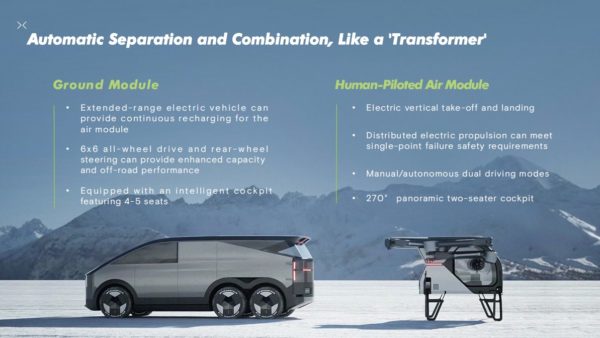
A miracle is required to heal Nigeria and another miracle to stop corruption. The new man will need to be like Ghandi.
Looking at these pictures, why is it that the poorest of nations generate the most amount of rubbish?! Why do the poor have insufficient incentive to try to improve where they live